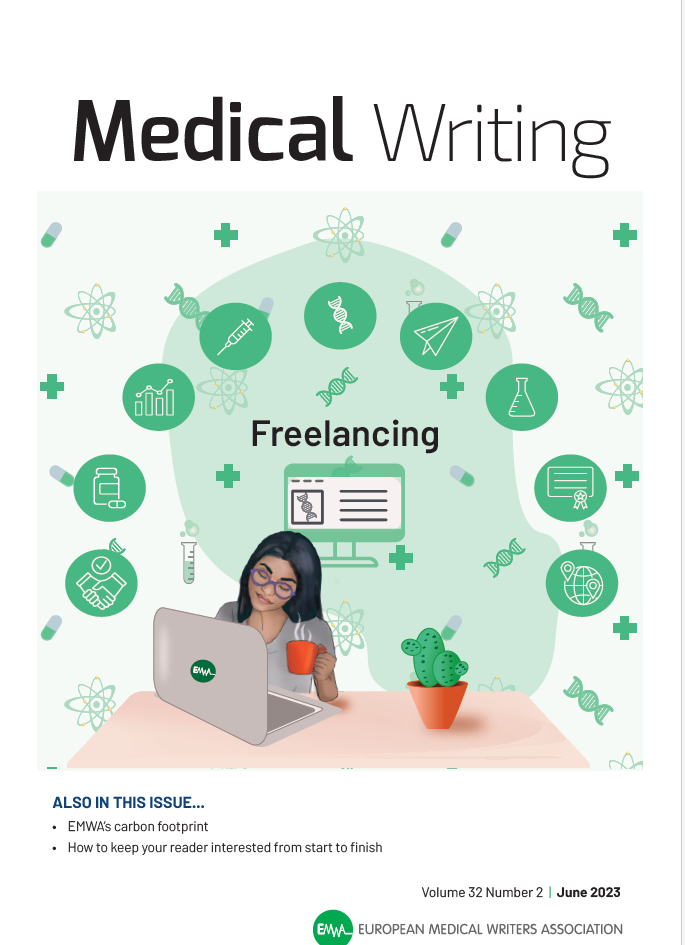
Volume 32, Issue 2 - Freelancing
From academia to freelance medical writing: Navigating the transition
Author: Rebecca Tadokera
Abstract
Academics who have transitioned to medical communications (MedComms) find that there are many parallels between the two fields, leading to fulfilling and rewarding careers. Many of the skills honed in academia such as research, technical writing, and rigour are transferable to MedComms. Technical competence alone, however, is not enough. The transition from academia to freelance medical writing presents a unique set of challenges with a steep learning curve. In this article, four ex-academics share their transition journeys from academia to freelance medical writing, the challenges they encountered, and their learnings. Apart from the core business of writing, freelancers must wear many hats to be able to operate a successful business. Additional skills such as networking, marketing, and business manage ment are a fundamental requirement for success as a freelancer. Equally important is skilfully defining your niche for services and positioning yourself as an expert to potential clients.
Medical Writing. 2023;32(2):18–21. https://doi.org/10.56012/lswv5461
 Download the full article
Download the full article
Search
Articles
Links
Editoral Board
Editor-in-Chief
Co-Editors
Managing Editor
Victoria White
Deputy Managing Editor
Alicia Brooks Waltman
Associate Editors
Section Editors
AI/Automation
Biotechnology
Digital Communication
EMWA News
Freelancing
Gained in Translation
Getting Your Foot in the Door
Good Writing Practice
Pablo Izquierdo / Alison McIntosh
In the Bookstores
Publications
Medical Communications/Writing for Patients
Medical Devices
My First Medical Writing
News from the EMA
Pharmacovigilance
Regulatory Matters
Regulatory Public Disclosure
Louisa Ludwig-Begall / Sarah Kabani
The Crofter: Sustainable Communications
Veterinary Writing
Editors Emeritus
Layout Designer
Chris Monk
 Visit the EMWA website
Visit the EMWA website